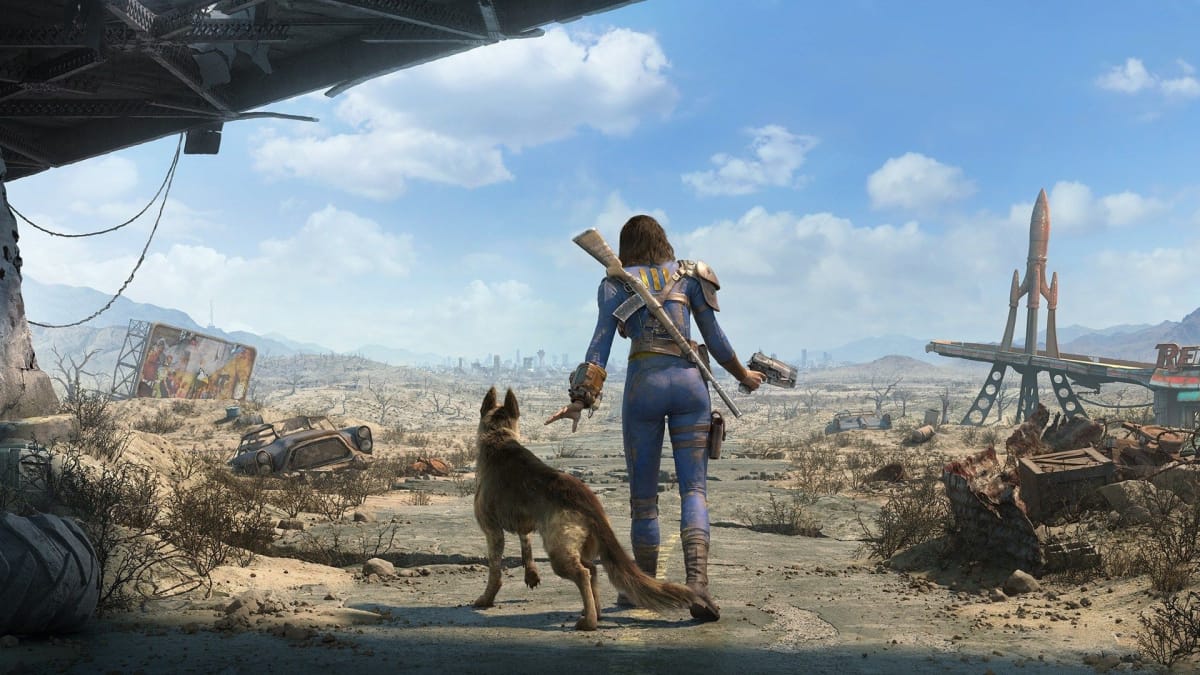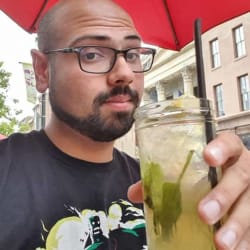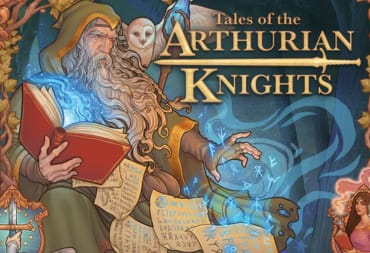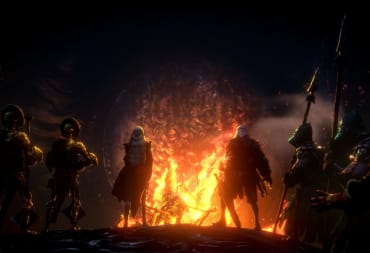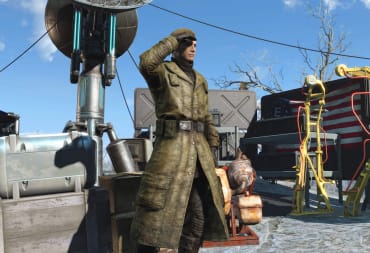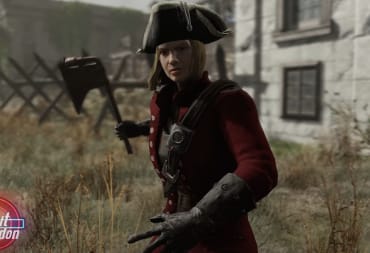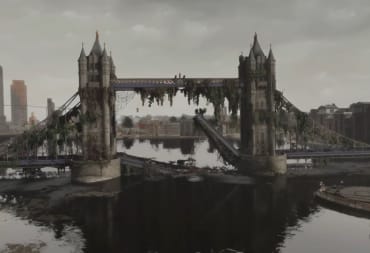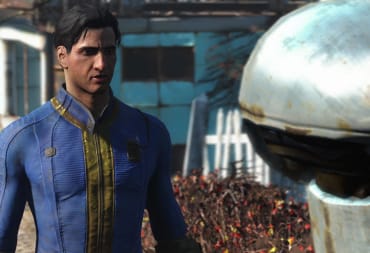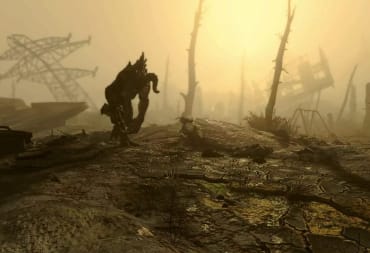When Todd Howard stepped onto the stage at Bethesda's E3 Press Conference in 2015, the crowd went wild. Everyone knew what was coming. The most open secret in video games, the legendary Fallout 4, was about to be announced. Fans both in the audience and watching online lost their collective minds for the next four months, spreading rumors, speculating wildly and hyping themselves beyond belief. And I, meanwhile, was only just made aware of the Fallout franchise when an ad popped up on TV in October.
Something about the trailer captured my heart—I knew I needed to be there, in the wasteland, fighting the good fight. But alas, the only game console I owned was a Wii U. And so I downloaded Fallout: New Vegas and Fallout 3 on my potato laptop from college and began my journey through the post-capitalist apocalypse. By Christmas, I was irretrievably hooked. I purchased a PlayStation 4 and Fallout 4 for myself and sat down to play—and never got back up. The first weekend I had Fallout 4 was the first and only time I was so trapped in a game I lost a whole day of my life. I went 16 hours that Saturday without moving, without eating. It's something we all wish to find in a game at some point in our lives, and at that particular time I desperately needed it.
It's well known among my friends and colleagues that I'm something of a Fallout fanatic. I've spent close to 800 hours in Fallout 4 now, and about 550 of those were on PS4 without mods. So, how did I find the fun in what I agree is a pretty disappointing RPG? I just looked a little further, and somewhere in the Commonwealth, in between Preston's endless settlement quests and the anticlimactic story endings, I found home.
If You Build It, They Will Come
I understand that many, perhaps even most, players chose not to engage with the settlement building in Fallout 4. That's fair; based on the previous games in the series, you'd be forgiven for thinking you were signing up for another RPG. In this respect, Bethesda falls flat on its face. With the unforgivable gutting of dialogue—reducing thousands of nuanced and complex sentences to, "Yes," "No," "Sarcastic Yes," and "Well no, but actually yes,"—BGS firmly declared their focus was no longer on dialogue, no longer on the idea of creating a complex web of layered ideas. Here was the quest option, and you'd go down it whether you liked it or not. But out of this misguided attempt to make the game more accessible to casuals, a wonderful thing happened.
With underwhelming writing to carry the story, including a few minor deviations from established canon, Fallout 4 became an open-world survival sandbox with some RPG elements to keep things running. When survival mode dropped a few months after release, it became clear that this was Bethesda's aim all along. I still maintain that if you are searching for an open-world, single-player survival game, you will not find one better than Fallout 4.
"But that's not Fallout!" a chorus of voices cries from the depths of Reddit, and they're right to a large degree. Fallout 1-3 and New Vegas all centered on communicating the nuanced ramifications of late-stage capitalism taken to its extreme end. Fallout 4, on the other hand, fails spectacularly at grasping this core tenet of Fallout and instead offers you a chance to rebuild this post-neoliberal world into something of your own choosing. The world, the history, the iconography of Fallout is intact. To these critics, I say this: the heart of Fallout is in the destruction of the old, of the hyper-capitalist world where a ticket to Nuka-World cost $6,000, and the creation of a new world. A new hope, even.
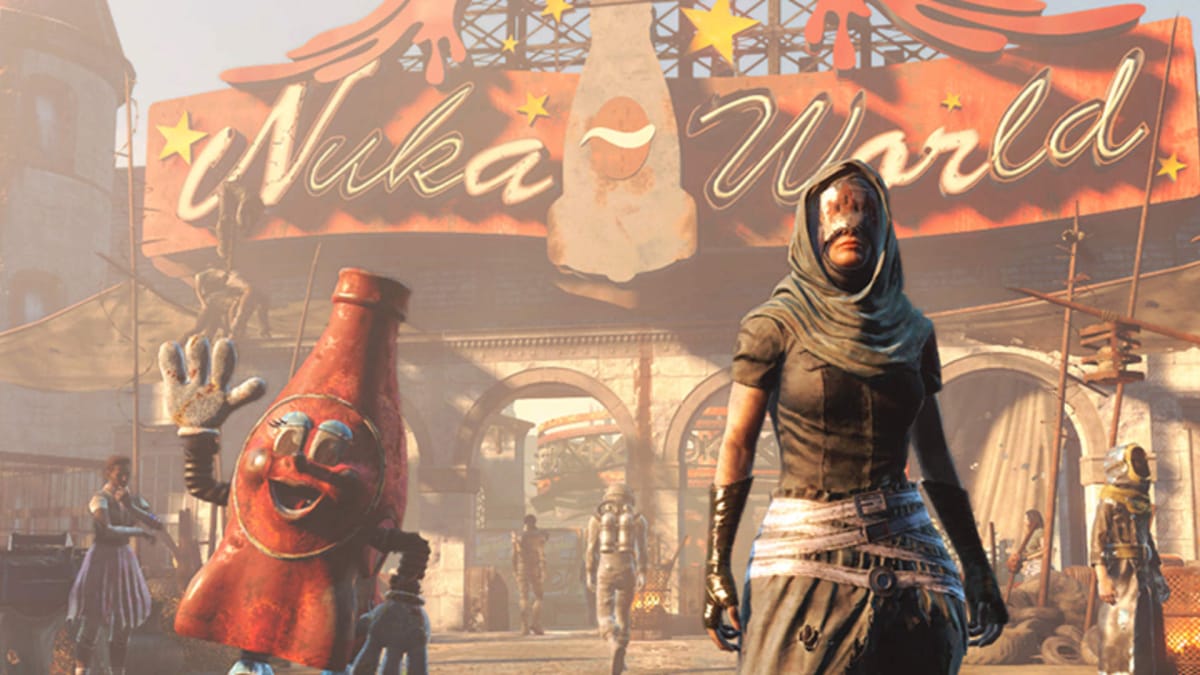
I agree that all four faction endings for Fallout 4 are underwhelming, but despite being sloppily written, they are tonally in sync with what the franchise is known and celebrated for. The real story here, the real ending, is the creation of the new world. Building dozens of settlements slowly across the land, with your own two hands, is the reward. This network of communal societies with open trade routes is the true ending. This, not the destruction of the Institute and a fake son, is the reward. The closed off, isolated tribal nature of the Commonwealth is a thing of the past by time the Sole Survivor has finished building this new empire. The settlements are not an impediment to what Fallout 4 could have been; they are the heart and soul of it.
This new society built by scavenging the junk, the literal broken pieces of the old world and rebuilding them into a civilization that is built on sharing, caring for others, and sustainability. It is a better society; in a lot of ways, Fallout 4 feels like the chronological "end" of Fallout. I hope that future games, like Fallout 76, take place before the war with the Institute and the invasion of the Brotherhood of Steel so as not to disrupt that narrative finality. I also appreciate that Bethesda leaves the option in to keep the world broken; following the Overboss ending of the Nuka-World DLC leads the Sole Survivor to raze the Commonwealth, to tear down everything that they have built and fought for. It's not a rational choice, but it's one that I appreciate is there. I think Howard and his team understand the choice they've presented here - if the player finds the world so despicable that it should not continue on, it's in their power to end it all.
Making Your Own Story (When Bethesda Won't)
I wholeheartedly agree with the common sentiment that Obsidian Entertainment's Fallout: New Vegas is the best game in the series, and it's not even close. But while Obsidian focused on creating hundreds of branching storylines across dozens of quests that allowed me to tailor-build a story to my character, Bethesda Game Studios elected to take a more hands-off approach. Environmental storytelling is left to pick up the slack, showcasing micro-stories across the hundreds of quiet buildings in downtown Boston. Some are sad, others comedic; most drive home the feeling of emptiness. Many would say this approach was a little too hands off, but hey, that's the Wasteland, baby.
Fallout 4 is not, overall, a well-written game. There are occasional bursts of genius: The Silver Shroud, Nick Valentine's backstory, the true identity of Paladin Danse, and the entirety of the Far Harbor DLC. But these moments that remind us of the brilliance of previous games are the exception, not the norm. Fallout 4 came so, so close to making a poignant statement about what makes us human, but fell short of saying anything meaningful in any of the four faction endings. This, again, is rectified in the Far Harbor DLC, where Howard and his team take a more nuanced look at what separates the humans and synths and how in the end, it may not even matter.
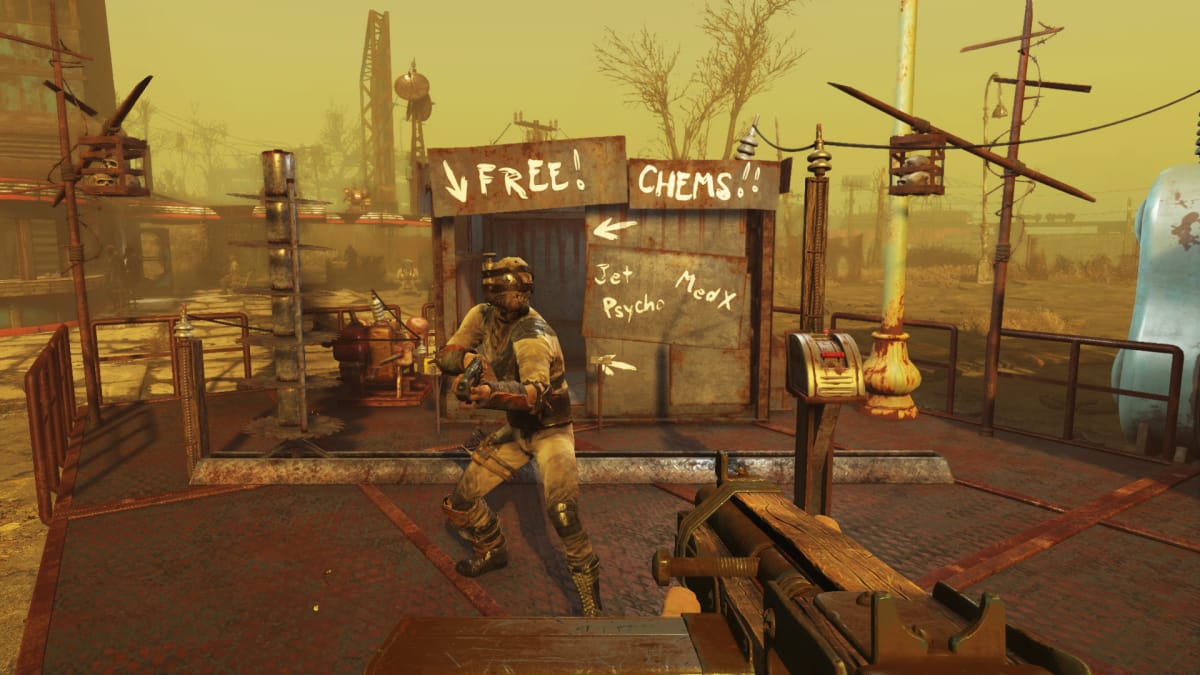
She travels across miles of hellscape to find the shining capital of the Commonwealth, Diamond City, and with the help of new and resourceful teammates she quickly tracks down the kidnapper and begins to unravel the mystery. An Irish junkie from the fighting pit, a robot detective, a magical helmet that makes you immortal, an underground network of borderline terrorists, a team of high-tech fascist soldiers that attempt to "cleanse" the Commonwealth—each of these things are stepping stones to Shaun, the only thing she fights for. Back and forth, allying and betraying factions, building up some towns and razing others—it's only in pursuit of finding her son. She will tear apart the entire world if she has to, and turns out she does have to.
While bigger in scale, I believe Fallout 4 sticks to one very important theme the whole way through: parenthood. What will a tear-stricken mother, a howling, enraged father do to rescue their only child? I see Fallout 4 through perhaps a different lens than some critics do. This was never about politically disparate factions or the nature of humanity; it remains, as always, a story about war. And what could be a greater cause for war, a greater feeling for war, than losing a child? Bethesda Games Studios did not, quite frankly, put in the work to make a story that deserves the passion with which I have described it. But they did give me the sandbox to build it, and build I did. This, again, is the reward. Not in the receiving of a well-told story, but in building one.
The Foundation is Laid
Many fans of Fallout lament the series, sighing loudly here and there that Bethesda Game Studios will never make another good game. I disagree - they have the tools, they have the talent, they have the understanding to do so. While the initial state of Fallout 76 was undeniably abysmal, the Wastelanders update has proven that Bethesda Game Studios does have the chops necessary for a "real" Fallout game. With the return of almost every hardcore RPG element fans missed from New Vegas combined with their dedication to the cycle of building and destroying, Bethesda is close to tapping in to a perfect merging of the Black Isle Studios/Obsidian take on Fallout and their own.
Fallout 4 is an interesting game that will continue to divide players. Despite being dismissed by most hardcore RPG players, it is one of the best-selling RPGs of all time, beaten only by Bethesda's own Skyrim. It opened the world of Fallout and even the world of RPGs to millions of people, and I don't think it'll be soon forgotten. Iconic in both the best and worst ways, I look back at Fallout 4 today as an open-world adventure that disappointed many and delighted so many more.
In this microcosm I found a broken world and built a new one out of the ashes, and for that I am thankful. I think there is a path to this perfect, ideal Fallout game that appeals to most everyone. Perhaps it's through a joint effort with fellow Microsoft studio Obsidian Entertainment; perhaps it's in some new blood taking a crack at their favorite game series with fervor. However it comes to us, I am content to head back to my settlement in Bunker Hill for now and fix up those turrets that I've been putting off.
Have a tip, or want to point out something we missed? Leave a Comment or e-mail us at tips@techraptor.net
